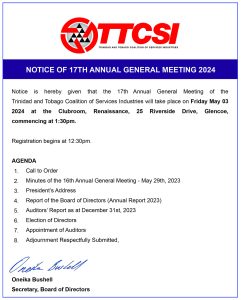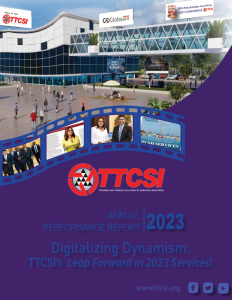In early 2008, CARICOM Heads agreed to move ahead with the Free Trade Agreement (FTA) with Canada. Discussion towards a CARICOM-Canada free trade agreement was announced at the Canada-CARICOM Summit in 2001, in Jamaica. Since then exploratory talks as well as an inaugural meeting of CARICOM and Canadian chief negotiators took place. Negotiations are expected to commence in June 2008. The countries who are expected to be parties to the Free Trade Agreement are Canada and the CARICOM fifteen member countries: Antigua and Barbuda; The Bahamas; Barbados; Belize; Dominica; Grenada; Guyana; Haiti; Jamaica; Montserrat; Saint Lucia; St. Kitts and Nevis; St. Vincent and the Grenadines; Suriname, Trinidad and Tobago. Some questions regarding CARICOM-Canada Free Trade Agreement:
Q.1 What has happened to date with the CARICOM-Canada Free Trade Agreement?
A. In early 2008, CARICOM Heads agreed to move ahead with the Free Trade Agreement (FTA) with Canada. Discussion towards a CARICOM-Canada free trade agreement was announced at the Canada-CARICOM Summit in 2001, in Jamaica. Since then exploratory talks as well as an inaugural meeting of CARICOM and Canadian chief negotiators took place. Negotiations are expected to commence in June 2008.
Q.2 Which countries will be parties to the CARICOM-Canada Free Trade Agreement?
A. The countries who are expected to be parties to the FTA are Canada and the CARICOM fifteen member countries: Antigua and Barbuda; The Bahamas; Barbados; Belize; Dominica; Grenada; Guyana; Haiti; Jamaica; Montserrat; Saint Lucia; St. Kitts and Nevis; St. Vincent and the Grenadines; Suriname, Trinidad and Tobago.
Q.3 What is Canada’s overall objective or trade policy at this stage?
A. Canada is seeking to strengthen its commercial ties with its longstanding regional partners as well as contribute to facilitating development through economic integration within the Western Hemisphere.
Q.4 What is CARICOM’s overall objective or trade policy at this stage?
A. CARICOM is seeking to deepen disciplines to improve market access for exports; stimulate increased flows of Canadian investment into the region and provide a comprehensive framework for development co-operation initiatives.
Q. 5 What is the TTCSI’s overall objective or trade policy at this stage?
A. The TTCSI overall objective is to improve trade facilitation mechanisms; increase opportunities for business partnerships and gain greater access for our members into Canadian markets. The TTCSI is also dedicated towards building closer economic ties with countries in which a huge Caribbean Diaspora exists.
Q.6 Does CARICOM member states have existing trade and/or co-operation agreements with Canada?
A. Yes, they include:- (i)CARIBCAN (ii)CARICOM-Canada Trade and Economic Co-Operation Agreement and its Protocol (1979) (iii)CARICOM-Canada Protocol on Rum (1998) (iv)Canada-Barbados Bilateral Investment Treaty (v)Canada-Trinidad and Tobago Bilateral Investment Treaty
Q.7 Why is a new trade agreement being negotiated?
A. CARIBCAN, a non-reciprocal preferential agreement granted by Canada for goods, has expired and a new reciprocal agreement is to take its place. There has been no agreement on services to date, however both parties view it as an excellent opportunity to include it in the upcoming negotiations.
Q. 8 What will be in the CARICOM-Canada Free Trade Agreement?
A. This is still to be decided. There are a number of fundamental elements related to trade law that will be included, such as Domestic Regulation, Legal and Institutional Issues and Dispute Settlement. Other issues include the entry of Service Providers and sectors for liberalization. The shape and form of these will have to be discussed. Essentially at this stage the Free Trade Agreement can contain any issue e.g. principles, trade elements and specific sector commitments, that the private sector deems necessary to increase its share in the global market place.
Q. 9 What information does the TTCSI need to gather from its Members Consultation?
A. Anything that members deem necessary for achieving a trading advantage for the Trinidad and Tobago service sector and/or its sub-sectors. However, the following is being used as a starting point in engaging in our members in consultation. (i)Sector Interest in Canada: Please list the services sectors that your Association has an interest in within the Canadian Markets. Please include a brief reasoning. (ii)Sector Interest in Trinidad and Tobago: Please list the services sectors that your Association has an interest in opening-up or keeping restricted from Canadian service suppliers. Please include a brief reasoning. (iii)Services Market: Please list any measures affecting access to Canada’s service markets, including regulatory measures that may restrictive e.g as it may relate to cross-border trade in services or the temporary entry of business persons. (iv)Procedures to doing business in Canada: Please give a step by step account of the entire procedure that your members have to comply with to provide their services in Canada. Please include necessary documents; length of time it takes for approval etc. (v)Investment Barriers: Please indicate if you have faced any of the following barriers to investing in Canada and please include the details of each- (a) Restrictions imposed on foreign ownership or entry to market (b) Questions of transparency of regulation (c ) Performance requirements e.g. local content; use of local labour and/or services (d) Impediments encountered in doing business with Canadian monopolies, state enterprises or other government organizations (e) Any other barriers





